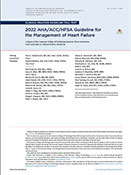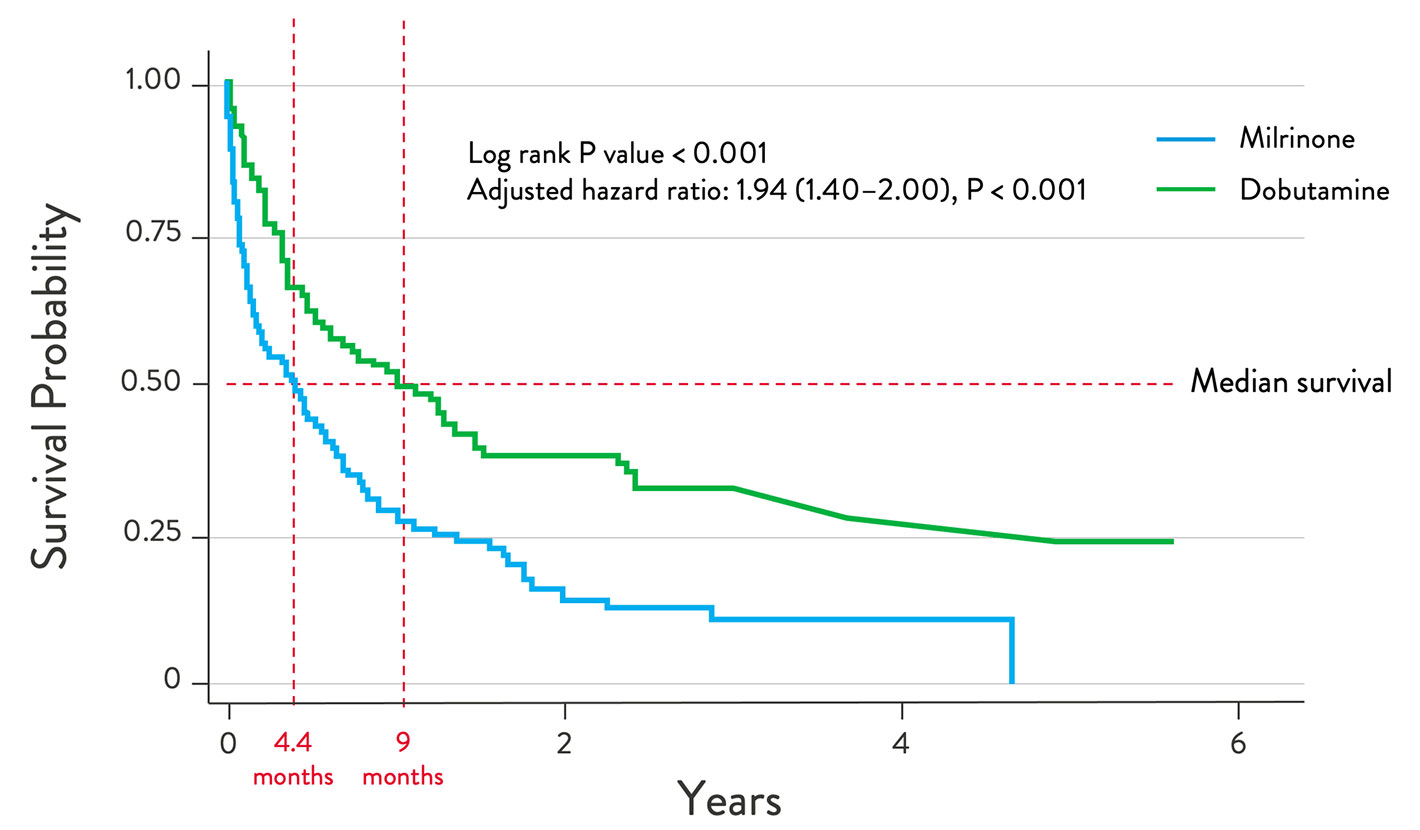LVAD therapy receives a 1A Recommendation from the U.S. joint societies1
The joint committees of the American Heart Association (AHA), American College of Cardiology (ACC), and Heart Failure Society of America (HFSA) recently evaluated the data on LVAD patient outcomes and granted a 1A Recommendation for heart failure patients who are dependent on intravenous inotropes or cannot be weaned from temporary mechanical circulatory support (MCS).
8.4 Mechanical Circulatory Support
“Recommendations for mechanical circulatory support referenced studies that support the recommendations are summarized in the Online Data Supplements”

1A Recommendation is the strongest Class of Recommendation (COR) and the highest level of evidence (LOE). This means that benefits are supported by strong data and far outweigh the risks.
See a Summary of the 1A Recommendation


Inotropes can help heart failure symptoms in the short term but are not a life-saving therapy1,2
For patients with advanced heart failure, the likelihood of long-term survival without an LVAD or a heart transplant is extremely low.1,2
Due to poor outcomes associated with long-term inotrope use when a transplant or LVAD is an option, the American Heart Association (AHA), American College of Cardiology (ACC), and Heart Failure Society of America (HFSA) have issued a 3 Harm recommendation.1 This indicates that the risks of long-term inotrope therapy far outweigh the benefits if a transplant or LVAD if available.1
Patients on long-term inotrope support have a median survival of under a year3

{hospital}
{distance} miles
Results
Clinics are listed in order of geographic proximity from the information entered in the locator. Abbott does not endorse any of the clinics on this locator, but merely provides them as a courtesy to patients. Nor does Abbott represent that this is a full list of clinics in a particular location. Though Abbott attempts to regularly update the locator, the locator may not have the latest information regarding the clinic or provider, or availability of product. The clinics are included in the locator because they are certified as a HeartMate LVAD implanting center, have ordered at least one HeartMate LVAD in the last 12 months, and have all HeartMate LVAD device-related equipment required for patient management. The number of orders has been validated; the number of implants has not been validated. This locator includes US clinics only. No clinics or healthcare professionals (HCPs) have paid or received a fee to be listed, but some HCPs within the clinics on this locator may purchase products from Abbott, provide consulting services to Abbott, and/or may have a financial relationship with Abbott. The locator is not meant to be an endorsement for any particular clinic, nor does it represent the qualifications of the HCPs at the clinic. Note that Abbott is a medical device manufacturer and cannot provide medical advice.
For more information about this clinic locator please see our policy. Any information you provide is covered by Abbott’s Privacy Policy
Patient Education for Heart Failure
A resource to help patients learn more about heart failure and understand how LVAD therapy can save their life.

*Patients on inotropes who did not receive a transplant or left ventricular assist device.
References
- Writing Committee Members; ACC/AHA Joint Committee Members. 2022 AHA/ACC/HFSA guideline for the management of heart failure. J Card Fail. 2022;28(5):e1-e167
- Sami F, Acharya P, Noonan Q, et al. Palliative inotropes in advanced heart failure: comparing outcomes between milrinone and dobutamine. J Card Fail. 2022;28(12):1683-1691
- Mehra MR, Goldstein DJ, Cleveland JC, et al. Five-Year Outcomes in Patients With Fully Magnetically Levitated vs Axial-Flow Left Ventricular Assist Devices in the MOMENTUM 3 Randomized Trial. JAMA. September 8, 2022. doi:10.1001/jama.2022.16197
- Hashim T, Sanam K, Revilla-Martinez M, et al. Clinical Characteristics and Outcomes of Intravenous Inotropic Therapy in Advanced Heart Failure. Circ Heart Fail. 2015;8(5):880-886
MAT-2508280 v1.0
